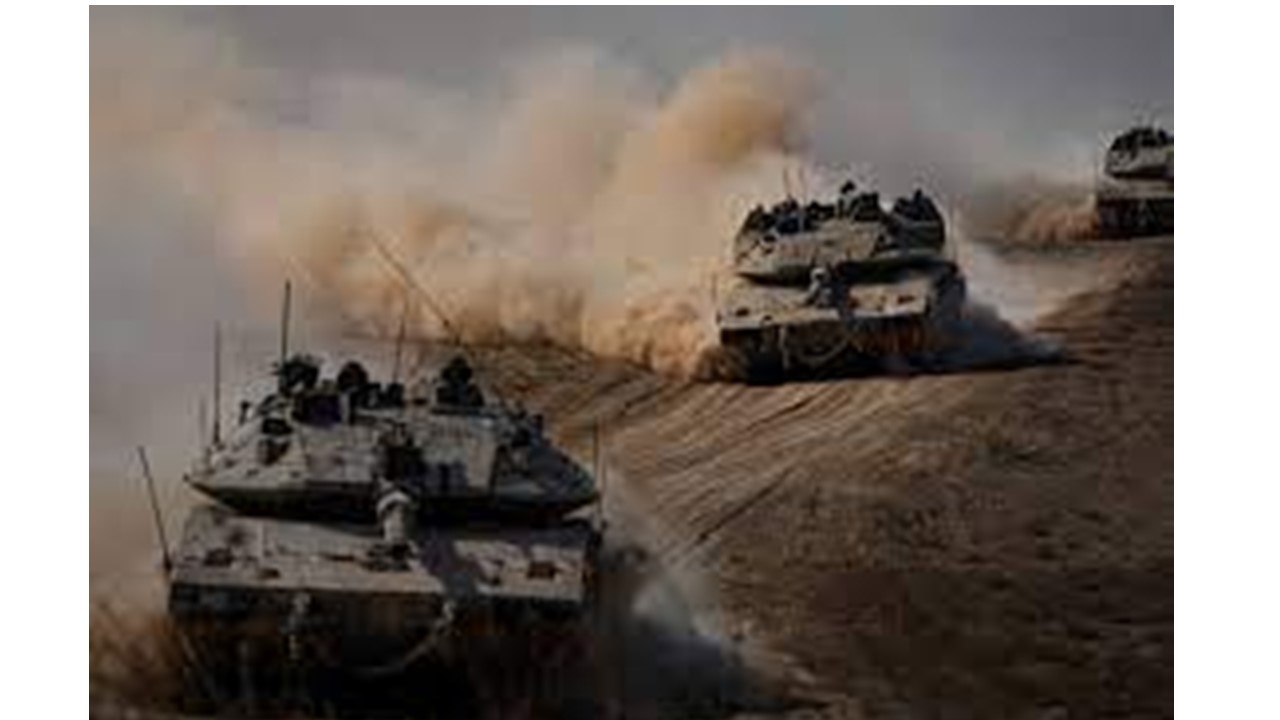A full-scale invasion of Gaza – “Everything you can imagine and worse.”

The Israeli government said 300,000 personnel including recently mobilised reservists are assembling near the border with Gaza for Israel’s expected invasion of Gaza, with its stated aim of rooting out Hamas.
The group’s fighters killed an estimated 1,200 Israeli civilians and soldiers on Saturday and the Israeli government said 300,000 personnel including recently mobilized reservists are assembling at the Gaza border “ready to execute the mission we have been given”. According to the UN, Israel is telling everyone in north Gaza – about 1.1 million people – to relocate to the south of the territory.
The invasion “looks likely to be larger, longer and more violent than anything that came before”, said The Economist, while a grocery shop owner in Jerusalem told The Washington Post that “hysterical” Israelis are already panic buying as the nation “transforms itself for war”.
Jets and bulldozers are expected to begin the operation. Under its so-called “doctrine of victory”, Israel’s air force will have a “deep bank of pre-vetted targets destroyed in rapid order” before troops go in, said the Financial Times (FT). Three-story-high armored bulldozers are then expected to be used to clear a path for units fighting on the ground.
The bigger question is what happens next. Following the example of the “shallow incursion” of 2014, or even the “deeper invasion to occupy larger tracts of the Gaza Strip” as it did in 2009 may seem “inadequate” to Israelis given the “widespread revulsion at Hamas’s atrocities”, said The Economist. Therefore, two armored brigades with tanks might “cut Gaza in two”, before thousands of troops target Hamas and Palestinian Islamic Jihad, focusing on leaders and infrastructure.
Israel’s approach is expected to be uncompromising. It has already cut off Gazans from electricity and water and announced that it will no longer use so-called “roof knocks” to alert residents of a building about to be bombed by first dropping a non-explosive projectile on the roof.
“It’s going to be very bloody,” John Spencer, a former US major who chairs urban warfare studies at the Modern War Institute at the United States Military Academy told the FT, because “you can’t change the nature of urban warfare”, meaning “there will be a lot of collateral damage”.
For Israel, using air power increases the risk of Palestinian civilian casualties, but using ground troops increases the risk to Israeli soldiers. The scale of the Hamas resistance remains to be seen but it is expected to be fierce. “Heavy mortars, machine guns, anti-tank weapons, snipers and possibly suicide bombers” await on the outskirts of Gaza’s cities, said the FT.
The military has officially insisted it is committed to international law and minimizing harm to civilians, but “some have hinted at collective punishment”, said The Economist, citing the words of an Israeli general, who said “The citizens of Gaza are celebrating instead of being horrified” and “human beasts are dealt with accordingly”.
The hostages?
A complication is the presence of more than 100 Israeli and foreign hostages in Gaza.
“Ordinarily,” said Gregg Carlstorm of The Economist in an interview with NPR, there would be “great public demand to try and free them, whatever it takes”. But the public and political mood is “a little different this time” and the hostages could “end up becoming collateral damage”.
Israel will “put aside some traditional values”, agreed The New York Times, including the principle “that Israeli hostages must be protected and returned”. Hamas said that 13 hostages have already been killed in bombings, reported Haaretz.
Will it succeed?
Israel’s troops “cannot hope to find Hamas leaders” in “hideouts known only to themselves”, wrote strategist and historian Professor Edward Luttwak for UnHerd. And nor can they hope to find Israeli hostages who “might be killed before their eyes if they come too close”.
Therefore, there are “no guarantees that any lasting result will be achieved”, said Luttwak, because Hamas is “an exceptionally brutal dictatorship” against “Gaza’s population” and the militant group has “killed anyone in Gaza who has asked for new elections”.
What is certain is that fresh horrors lie in store for the besieged territory and for those who invade. Asked what awaits Israeli soldiers, Ehud Olmert, a former prime minister of Israel, said: “Everything you can imagine and worse





